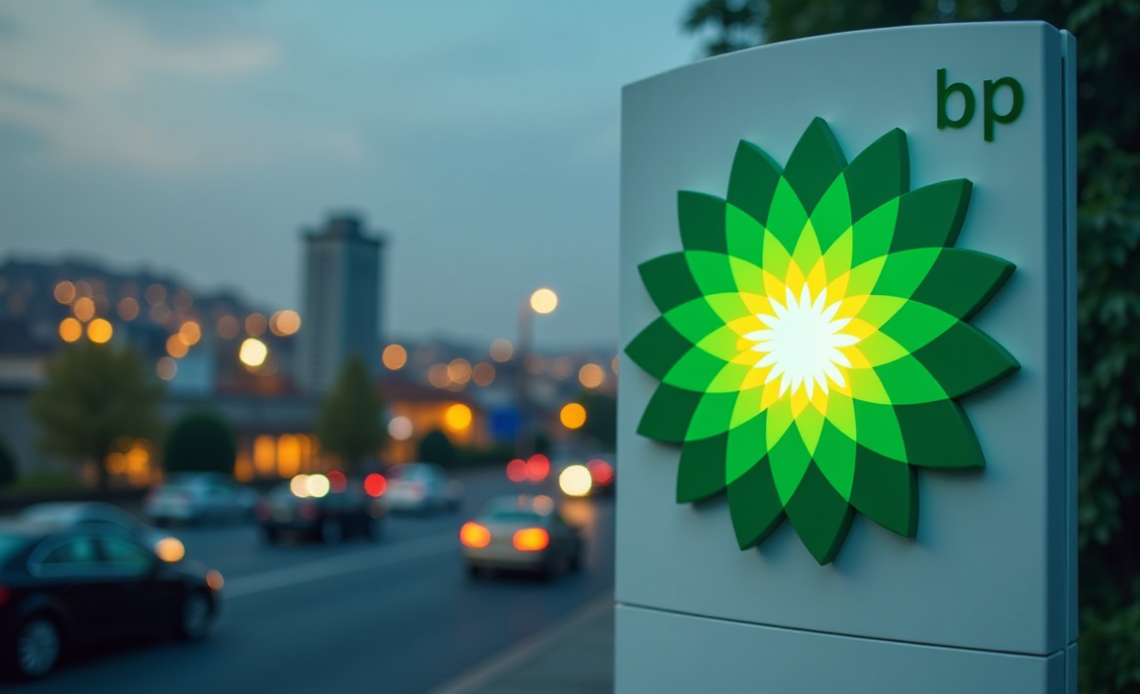
BP posted weaker-than-expected earnings for the first quarter on Tuesday, as lower crude prices and a recent pivot in corporate strategy weighed on performance.
The British oil major reported an underlying replacement cost profit of $1.38 billion for the January-to-March period, falling short of analyst expectations of $1.6 billion, based on a consensus compiled by LSEG.
The figure was down sharply from the $2.7 billion reported a year earlier.
The result comes at a time of heightened scrutiny of BP’s direction and execution, with activist shareholders questioning its mixed record in balancing traditional oil and gas operations with a broader push into renewables.
The company’s Q1 performance fell roughly 10% short of forecasts, reflecting both industry headwinds and internal pressures.
BP share price fell by 3.8% following the announcement of the results.
Dividends hold, but buybacks slashed
While BP maintained its dividend at 8 cents per ordinary share, it sharply reduced its share buyback programme to $750 million, down from $1.75 billion in the prior quarter.
The company cited continued market uncertainty and weaker oil prices for the decision.
Net debt rose to $26.97 billion at the end of March, up from $22.99 billion three months earlier.
BP had warned investors of lower upstream production and rising debt in the first quarter, with the numbers now confirming those expectations.
Analysts at RBC Capital Markets said the results reflect soft earnings in BP’s gas and low-carbon division, while noting that cost control in other areas helped partially offset the miss.
Giulia Chierchia-architect of renewables pivot exits following pressure from Elliott
As part of its broader strategic overhaul, BP also announced the upcoming departure of Giulia Chierchia, the executive vice-president of strategy and sustainability.
She will leave her post on June 1, with the role itself being abolished.
Chierchia was a central figure in BP’s shift toward low-carbon energy investments during the past few years, a direction that drew both praise and criticism.
Her exit follows growing pressure from activist investor Elliott Investment Management, which has called for changes in BP’s leadership and greater accountability over its strategic missteps.
BP said her responsibilities would be folded into other business areas to “enable quicker decision-making and clearer accountabilities.”
Fall in upstream production to limit boost to earnings in 2025: analysts
BP is making strong progress in its oil and gas division but it will take time for new production to boost earnings, Derren Nathan, head of equity research at Hargreaves Lansdown, wrote.
BP has three new start-ups and six discoveries in the pipeline but upstream production is still set to fall this year, he added.
Nathan noted that BP’s downstream division, which includes refining and marketing, is performing more strongly.
However, weak oil prices and rising debt levels mean the company must work harder to meet investor expectations.
Nathan added that BP’s target for asset disposals—now set at between $3 billion and $4 billion—may not be enough to significantly dent its $27 billion net debt.
He cautioned that more decisive cost-cutting measures could be on the horizon.
“The company is making impressive progress, but it’s a slow process and the difficult macroeconomic backdrop makes it challenging,” he added.
Balancing legacy energy with a changing market
The first-quarter results underscore BP’s struggle to balance its traditional oil operations with the demands of an energy transition.
In February, the company made a decisive shift back toward hydrocarbons, pledging to cut renewable spending in favour of increasing annual investments in oil and gas.
Still, CEO Bernard Looney faces pressure from both investors and the broader market to demonstrate that BP can maintain shareholder returns while managing its debt and navigating a volatile energy landscape.
The company will next provide financial guidance when it reports second-quarter results later this year.
The post BP Q1 earnings fall short; analysts cite strong downstream, weak oil, rising debt appeared first on Invezz






